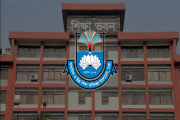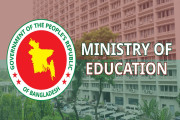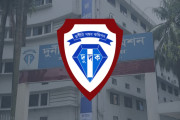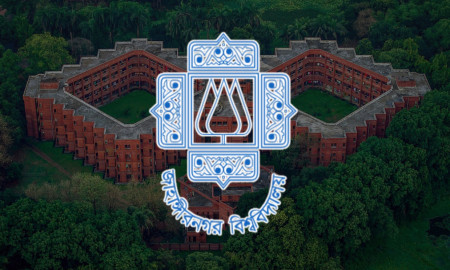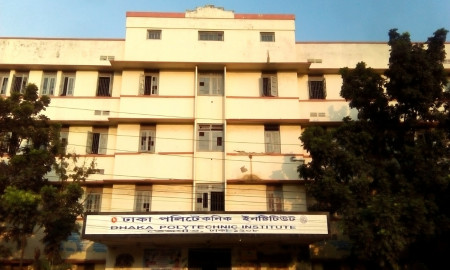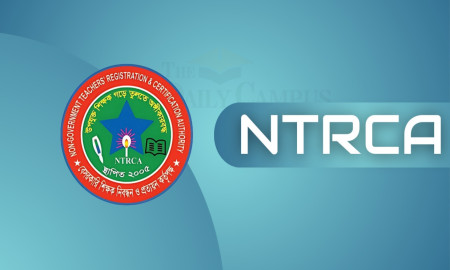Rising Number of High-Cost Educational Institutions in Bangladesh
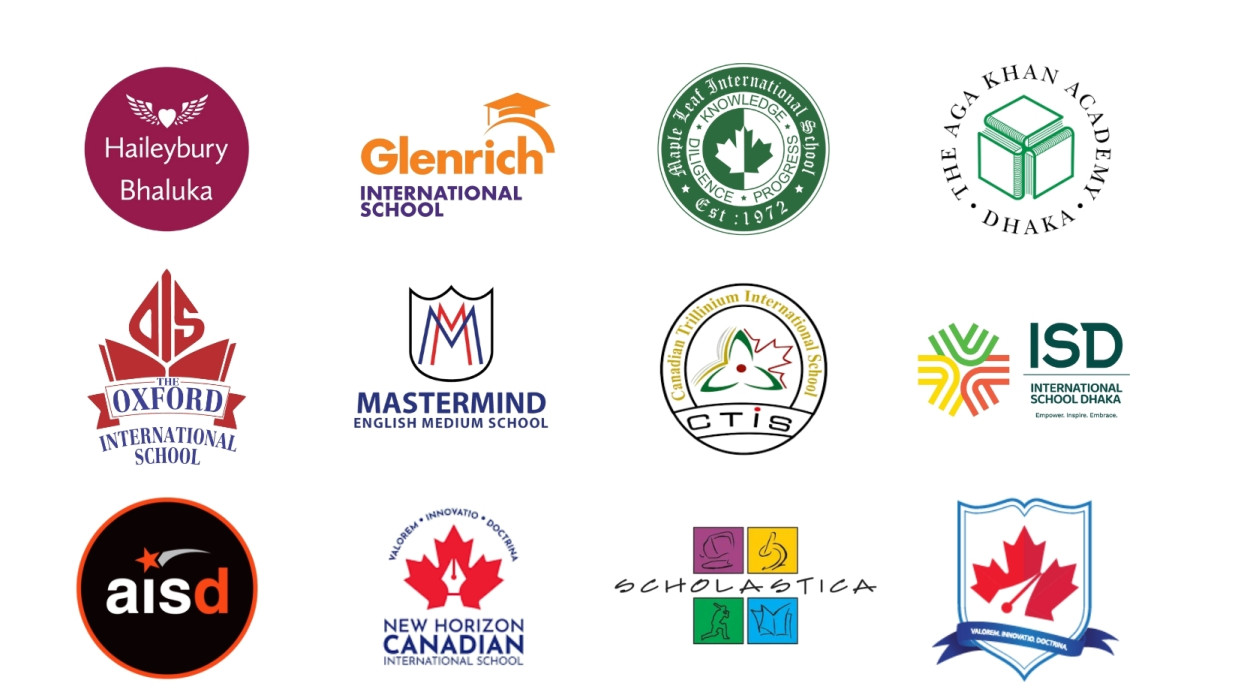
The number of expensive English-medium schools in Bangladesh is increasing, driven by the goal of providing world-class education and developing globally competitive human resources. These institutions, with annual costs reaching up to BDT 4 million, are seeing growing interest from parents eager to enroll their children.
Currently, there are 140 government-registered English-medium schools in the country, with three more—Glenrich International, Haileybury Bhaluka, and New Horizon Canadian International School—set to begin operations this year. Entrepreneurs attribute this trend to the rising number of millionaires, affluent individuals, high-salaried professionals, and expatriates working in Bangladesh. They note that many parents in these groups are seeking world-class education domestically. One entrepreneur stated, “If the quality justifies the cost, they have no objections.”
These ‘five-star or premium’ schools are designed to cater to this demographic, promising international-standard education and services. They aim to foster a globally competitive environment by bringing together teachers and students from various countries. According to the Bangladesh Bureau of Educational Information and Statistics (BANBEIS), 68,825 students are enrolled in these schools, supported by 6,453 teachers, though enrollment has decreased by 9,375 students compared to last year.
However, educators and stakeholders have raised concerns about the high costs versus the quality of services provided. Annual expenses at top schools range from BDT 200,000 to BDT 4 million, with additional costs for books, extracurricular activities, and other services. Despite efforts by institutions to balance cost with quality, the absence of specific laws or guidelines has led to unregulated fee structures, prompting questions about value for money. Educators are not fully optimistic about these institutions’ ability to deliver on their promises, citing the lack of a clear regulatory framework as a barrier to establishing a standardized system.
In Bangladesh, English-medium schools following the British curriculum offer Ordinary Level (O-Level) for grades 1 to 8 and Advanced Level (A-Level) for grades 9 to 12, with subsequent A1 and A2 levels. Examinations are conducted in the style of UK schools and colleges. Alongside English-medium instruction, some schools provide education under the “English version” system. Additionally, certain institutions operate using the British Columbia curriculum or the International Baccalaureate (IB) curriculum.
Analysis of fee structures at several prestigious institutions aiming to maintain premium standards reveals that annual education costs range from a minimum of USD 4,000 (BDT 432,000) to a maximum of USD 37,300 (BDT 4,028,400) in Bangladeshi currency. These costs vary by grade, from playgroup or KG1 through the highest levels of institutional education. Inquiries at leading foreign-medium schools in the capital, including Oxford International School, Scholastica, American International School Dhaka, Canadian Trillium School Dhaka, Aga Khan School, International School Dhaka, DPS STS School Dhaka, Maple Leaf International School, Mastermind, and Glenrich International, have confirmed this information.

Education Minister Dr. Dipu Moni stated, “There’s little need for specific laws for English-medium schools; existing ordinances are sufficient. Access to these schools has become easier. Previously seen as exclusive to the elite, this perception has now changed.”
Institutions claim they charge these amounts for admission, tuition, and related services. At American International School Dhaka, starting education costs a minimum of BDT 1.4 million annually, with expenses exceeding BDT 4 million at the highest levels. Similar amounts are required at International School Dhaka and the newly established full-fledged boarding school, Haileybury Bhaluka, among others. Some well-known schools charge less than BDT 3 million per year, and certain institutions offer scholarships and other benefits to make education more affordable. At the recently established Glenrich International School, costs range from BDT 216,000 to BDT 1.6 million.
The Bangladesh Bureau of Educational Information and Statistics (BANBEIS) reports that there are currently 140 English-medium schools, including the three newly approved ones—Glenrich International, Haileybury Bhaluka, and New Horizon Canadian International School. Of these, 30 offer O-Level, 90 offer A-Level, and 17 are junior schools. These three schools are set to begin teaching this year or next, with two more awaiting approval. BANBEIS data indicates that the number of English-medium students has decreased by 9,375 compared to last year, totaling 68,825 students, taught by 6,453 teachers.
Due to the lack of policies and oversight, English-medium schools in Bangladesh face long-standing allegations of charging excessive admission and tuition fees. Institutions collect several lakh taka annually for admission, alongside substantial monthly or yearly tuition fees. Additional expenses for coaching centers, books, and stationery have also raised concerns among students and parents. Parents particularly object to recurring admission fees, stating, “It’s unreasonable to charge admission fees again each year or for new classes after a student is already enrolled.”
In defense, institutions argue they provide international-standard services, necessitating higher fees. They state, “This includes education, extracurricular activities, and related aspects.” They emphasize the need to focus on technology, ethics, and soft skills, adding, “Alongside modern education, we must prioritize extracurricular activities to make students practical and life-oriented.” They further claim, “Ensuring world-class education for students is our goal. Parents sending children abroad will find this fee structure affordable.”
Regarding the unregulated fee structures, A.K.M. Ashraful Haque, president of the Bangladesh English Medium School Parents Forum, said, “In our country, English-medium schools set tuition fees illogically. There’s no effective role for parental input or government regulatory bodies. Top schools compete to raise fees, which must stop.” Dr. Qazi Kholiquzzaman Ahmad added, “We’ve long called for guidelines for English-medium schools, but why they haven’t been made, the government can answer. Even if guidelines exist, implementation is an issue. Awareness and law enforcement must increase.” Haque further noted, “Tuition fees for Cambridge or Edexcel curricula should range from BDT 8,000 to 15,000. Schools with better facilities like playgrounds may charge monthly fees of BDT 10,000 to 20,000. For IB curricula, monthly fees should be between BDT 50,000 and 100,000. In reality, fees are two to three times higher. We must speak out now and ensure qualified, experienced teachers are hired.”
Haileybury Bhaluka
For the first time in Bangladesh, the renowned UK institution Haileybury is set to launch an international boarding school, Haileybury Bhaluka, in Bhaluka, Mymensingh, this year. The institution has announced a USD 15 million scholarship fund, the largest single fund in Bangladesh. Authorities stated, “Students can enroll through a simple assessment and access scholarships. The USD 15 million scholarship fund, the highest single fund in Bangladesh, means students won’t have to pay maximum fees. They can study at a prestigious institution at lower costs through scholarships.”

Haileybury Bhaluka’s Bangladesh campus in Bhaluka, Mymensingh
Authorities state that Bangladesh has no branches of international schools, noting that the renowned Sunday Times ranked Haileybury sixth among the world’s best schools. Consequently, students here will receive services that prepare them to compete as global citizens. After graduating, most students attend prestigious institutions like Oxford, Harvard, and MIT. Additionally, Haileybury is the first school in Bangladesh to introduce Oxford’s High Performance Learning (HPL) framework for teaching.
The institution claims that at Haileybury Bhaluka, the head teacher and all faculty members are foreign experts. When a student enrolls, their age is entered into software after registration, generating questions based on their age-specific intelligence. This is a first in Bangladesh and the region, known as Community Ability Testing (CAT). Haileybury Bhaluka officials explain that this system is typically used in countries like the UK, Scotland, and Ireland.
Glenrich International School
The newly established Glenrich International School has outlined numerous commitments to ensure international-standard education and extracurricular activities in Bangladesh. Kumkum Habiba Jahan, Head of the Junior Section at Glenrich International School, said, “Glenrich International School aims to ensure world-class education for students, including extracurricular activities, in Bangladesh. For this, we have introduced the School of Life concept. We want to shape a student to be suitable for the future world.”
According to Jahan, students need to learn about various subjects and acquire skills beyond traditional classroom studies and curricula. Through Glenrich’s School of Life concept, a student will not only study but also gain proficiency in areas like robotics, mathematics, and music by participating in various extracurricular activities. They will develop their intellect, and these skills will play a role in making them globally competent.
She added that Glenrich International School offers a wide range of facilities for students, stating, “To ensure international-standard education, we teach according to the Cambridge curriculum. Additionally, to foster the proper development of students’ intellect, creativity, and skills, and to make them globally competent, we have arrangements for various extracurricular activities. For the first time in the country, this school has introduced several programs for students.”

Glenrich International School’s Dhaka campus
“We are offering a robotics curriculum approved in collaboration with STEMROBO, a math lab in partnership with MathBuddy, music accredited by the Associated Board of the Royal School of Music in the UK, state-of-the-art facilities certified by Beaumont, and French language certification through Alliance Française de Dhaka,” said Habiba Jahan.
She added that all classrooms in the institution are equipped with Wi-Fi, CCTV coverage with voice recording, a lounge for parents, a specially designed play area (modern and world-class), connected collaborative rooms, a dedicated entertainment area, and classrooms designed according to students’ age groups. The campus’s excellent environment will foster students’ creativity. They will make every possible effort to build a promising future for the students.
New Horizon Canadian International School
As part of establishing an international chain school in Bangladesh, New Horizon Canadian International School, an English-medium educational institution, has been established in an area adjacent to Hatirjheel in the capital through the initiative of T.K. Group of Industries, one of the country’s largest industrial conglomerates. Operating under the direct supervision and administration of the British Columbia Ministry of Education in Canada as part of the Global Offshore School Program, this school will offer the British Columbia curriculum, teaching materials, classroom standards, and the International Baccalaureate (IB) curriculum, with all options available for students.
The school authorities stated that various facilities will be provided for students, noting, “New Horizon Canadian International School is the first institution to make special arrangements for children with autism or special needs.” Students will receive regular healthcare services (health coverage). Arrangements have been made for their transportation, daycare, cultural and extracurricular activities, and all other necessary facilities. Additionally, the authorities confirmed that students will have access to meals supervised by nutritionists, along with all other amenities.
Special arrangements, including instruction by Canadian teachers with specialized training, have been made for children with autism or special needs. Students will receive regular healthcare services (health coverage), transportation, educational materials, co-curricular activities, language learning, and daycare facilities,” said Anjam Ansar, CEO of New Horizon Canadian International School.
In collaboration with the British Columbia Ministry of Education, Canada, and the local T.K. Group, New Horizon Canadian International School will soon commence its institutional education program with two campuses. The school has already started its preschool activities at its first campus on Dilu Road in the capital and will begin operations at its second campus in South Kunipara next year, following the completion of the school building’s construction.
The British Columbia Offshore School has been operating in eight countries worldwide for the past 35 years; Bangladesh has become the ninth country where the T.K. Group of Industries has received permission to operate this school. The school will be managed with a curriculum approved by the British Columbia Ministry of Education, led by certified principals and teachers who are Canadian citizens. Students of the school will be eligible to enroll directly in universities in Commonwealth countries such as the United States, Canada, Australia, the United Kingdom, and France.
The entrepreneurs hope that, as the school is internationally acclaimed and among the world’s top-ranked schools, it will establish Bangladesh as a prominent name in the education sector. At the same time, they aim to create an outstanding image both domestically and internationally by leading another noble initiative in the education sector.

Under-construction campus of New Horizon Canadian International School in the capital
Anjam Ansar, CEO of New Horizon Canadian International School, stated, “Our school has special arrangements for children with autism or special needs, including instruction by Canadian teachers with specialized training. Students will receive regular health coverage. We have arrangements for transportation, educational materials, co-curricular activities, language learning, and daycare, covering all aspects at this school. The principal and all teachers are British Columbia-certified and Canadian citizens.”
Regarding the comprehensive offerings, the official from New Horizon Canadian International School added, “We will begin academic activities with students in Playgroup, Nursery, Kindergarten, and Grade 1. Our students will have special opportunities to pursue higher education at renowned universities in Commonwealth countries upon completing their studies here.”
Preventing Outbound Trends and Saving Foreign Currency
Kumkum Habiba Jahan from Glenrich International School and Anjam Ansar from New Horizon Canadian International School believe these newly established institutions can curb the trend of students studying abroad. They stated, “Students will have access to international-standard education and related facilities here. They can now receive world-class education within the country, saving valuable foreign currency.” They noted that various familial and personal barriers often hinder students from pursuing secondary and higher secondary education abroad. “If the quality of education, environment, and related aspects in these institutions are satisfactory, parents will prefer their children receive high-quality education domestically rather than going abroad. As a result, we believe the tendency of students to leave the country will decrease to some extent,” they added.
However, local educators are not overly optimistic about these English-medium schools. Economist, development thinker, and co-chairman of the National Education Policy Formulation Committee, Dr. Qazi Kholiquzzaman, member of the National Education Policy-2010 Formulation and Implementation Committee and Education Law Formulation Committee, and veteran educator Principal Kazi Faruk Ahmed, along with Professor Dr. S M Hafizur Rahman from the Institute of Education and Research (IER) at Dhaka University, believe there should be specific laws and guidelines for operating English-medium schools in the country. They find the absence of such laws and guidelines disappointing.
Professor Dr. S M Hafizur Rahman remarked, “You need to examine why these institutions are being established or why large foreign institutions are coming here. Are they coming for their own interests or our needs? There should be guidelines for operating English-medium schools in the country. I don’t think these institutions will significantly curb the trend of students going abroad.”
Two prominent educators from the National Education Policy-2010 Formulation and Implementation Committee stated, “These institutions have created educational inequality in the country. The notion that only those with wealth can access quality education, while those without cannot even get the opportunity to study, is unacceptable.”
Principal Kazi Faruk Ahmed added, “This educational inequality contradicts Bangladesh’s foundational principles of equality, human dignity, and social justice as outlined in its independence proclamation.” He further noted, “I support modern, quality education, but it cannot be imposed forcibly. English-medium schools or systems in the country must be planned and practical. Otherwise, while individuals may benefit, these institutions won’t significantly contribute to national interests in the long run. Education is now a global matter, and our national expectations and achievements must be reflected in it. Education is a human rights issue. Therefore, establishing top-tier or high-cost institutions must consider our socio-economic realities and reflect them.”
Dr. Qazi Kholiquzzaman said, “We’ve long called for guidelines for English-medium education, but why they haven’t been made, the government can answer. Even if guidelines exist, implementation raises questions. We need to increase awareness and enforce laws.” He added, “This has become a business, and a certain class is falling prey to it. Though, it’s not quite falling prey—they’re going there willingly.”
Principal Kazi Faruk Ahmed reiterated, “English-medium institutions have created educational inequality. The idea that only those with wealth can access quality education, while those without cannot, is unacceptable. This educational inequality contradicts Bangladesh’s independence proclamation principles of equality, human dignity, and social justice.”
Professor Dr. S M Hafizur Rahman further stated, “You need to examine why these institutions are being established or why large foreign institutions are coming here. Are they coming for their interests or our needs? While their goals and objectives may seem appealing, we must assess how beneficial they truly are. English-medium schools won’t inspire much optimism among most people. We need to be more aware and establish guidelines. I don’t think these institutions will significantly reduce the trend of students going abroad.”
Regarding the varied fee structures of English-medium schools, Deputy Education Minister Mohibul Hasan Chowdhury Nowfel said, “We’ve tried to bring everyone under a uniform framework but haven’t succeeded yet. The government is working to bring all institutions under the same framework.”
Education Minister Dr. Dipu Moni believes that there is little need for specific laws for English-medium schools; existing ordinances are sufficient. Access to these schools has become easier. Previously, there was a perception that English-medium schools were for the elite. That perception has changed. Now, students from middle- and lower-income families are also getting opportunities to study at English-medium institutions.

